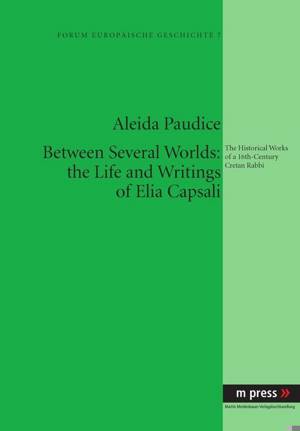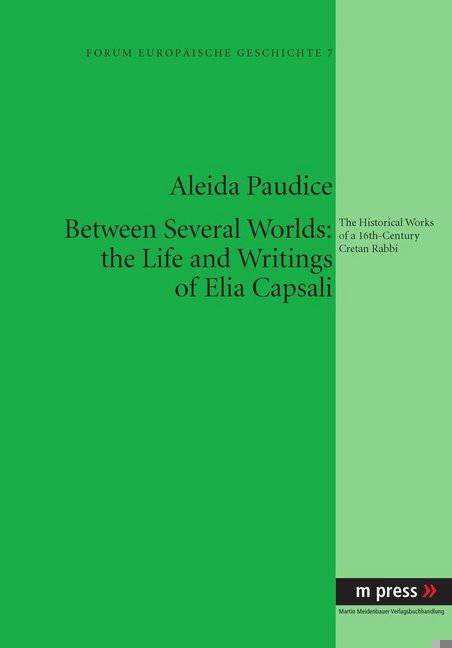
- Afhalen na 1 uur in een winkel met voorraad
- Gratis thuislevering in België vanaf € 30
- Ruim aanbod met 7 miljoen producten
- Afhalen na 1 uur in een winkel met voorraad
- Gratis thuislevering in België vanaf € 30
- Ruim aanbod met 7 miljoen producten
Zoeken
Between Several Worlds
the Life and Writings of Elia Capsali; The Historical Works of a 16th-Century Cretan Rabbi
Aleida Paudice
€ 113,95
+ 227 punten
Omschrijving
The study shows how Elia Capsali, a Cretan rabbi (ca 1485-ca 1555), demonstrated a unique perspective on Crete under Venetian (1211-1645) and Ottoman domination (leading up to the conquest of Rhodes in 1522), as described in his main historical works - the Chronicle of Venice (1519) and the Seder Elijahu Zuta (1523). By analyzing Capsali's historical context in Crete and the Cretan Jewish communities during the 16th century, the work depicts how Capsali's thoughts are rooted in his contemporary world.
In particular, this work deals with the way in which Capsali reflected his position at the crossroads between eastern and western traditions. By examining the Cretan Jews and involving Capsali's writing concerning the Ottoman Sultans, Aleida Paudice provides the key to reading and understanding Capsali's works. She offers possible explanations to Capsali's view on Ottoman history. Now more than ever, it's critically important to reflect on the relations between Islam and other religions and to realize, that the differences between the two are much smaller than is commonly the opinion today.
In particular, this work deals with the way in which Capsali reflected his position at the crossroads between eastern and western traditions. By examining the Cretan Jews and involving Capsali's writing concerning the Ottoman Sultans, Aleida Paudice provides the key to reading and understanding Capsali's works. She offers possible explanations to Capsali's view on Ottoman history. Now more than ever, it's critically important to reflect on the relations between Islam and other religions and to realize, that the differences between the two are much smaller than is commonly the opinion today.
Specificaties
Betrokkenen
- Auteur(s):
- Uitgeverij:
Inhoud
- Aantal bladzijden:
- 228
- Taal:
- Engels
- Reeks:
- Reeksnummer:
- nr. 7
Eigenschappen
- Productcode (EAN):
- 9783899757064
- Verschijningsdatum:
- 8/02/2010
- Uitvoering:
- Paperback
- Formaat:
- Trade paperback (VS)
- Afmetingen:
- 148 mm x 210 mm
- Gewicht:
- 290 g

Alleen bij Standaard Boekhandel
+ 227 punten op je klantenkaart van Standaard Boekhandel
Beoordelingen
We publiceren alleen reviews die voldoen aan de voorwaarden voor reviews. Bekijk onze voorwaarden voor reviews.








